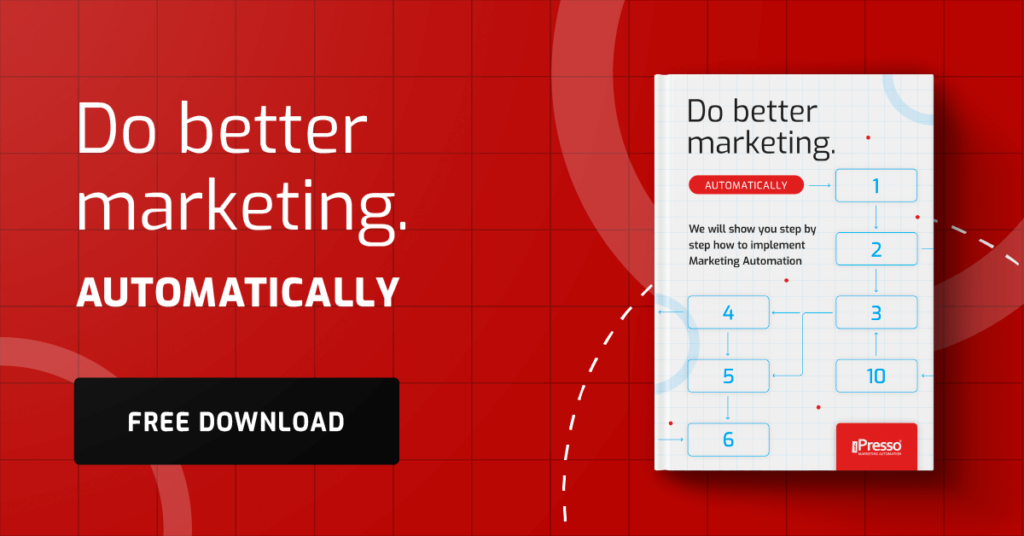What is data-driven marketing?

In the dynamic digital marketing landscape, companies need to up their game by turning to data-driven strategies that enable them to make informed decisions and improve their campaigns. Put briefly, data-driven marketing is a very effective approach to online marketing and advertising that leverages data analytics, customer insights, and diverse marketing technologies (including marketing automation!) to create targeted and personalized campaigns. In this article, we will show you what data-driven marketing is all about. We will also have a look at its importance in the modern business environment and practical steps on how you can implement it effectively.
Let’s start with a short definition of what data-driven marketing actually is.
The essence of data-driven marketing
This type of digital marketing is all about the collection and analysis of data to guide marketing strategies and decision-making processes. It involves gathering information on such things as:
- Customer behavior
- Customer preferences
- Interactions with a brand
- Effectiveness of marketing campaigns
Such an approach enables businesses to adjust their marketing efforts to specific audiences and their need, which results in improving customer satisfaction and boosting ROAS (return on ad spend).
Now, we want to show you a few real-life examples of how data-driven marketing can be used.
EXAMPLES OF DATA-DRIVEN MARKETING
- Personalized email marketing: One common example of data-driven marketing is the use of personalized email campaigns. By analyzing customer data, businesses can send targeted and relevant email content to specific segments of their audience, increasing the likelihood of engagement and conversions.
- Behavioral targeting: Data-driven marketing allows businesses to track customer behavior across various touchpoints (e.g., on the website or on social media profiles). This information can be used to deliver targeted ads, product recommendations, and content based on individual preferences and past interactions with your brand. For example, you can set up Facebook Ads only for people who have visited your website in the past 30 days and offer them a special promotion or discount.
- Advertising campaigns: If you run Google Ads or Facebook Ads, you have access to statistics on the effectiveness of your campaigns. You can use this data to improve your ads or the way they are targeted. For instance, if you see that a particular ad is not clicked that often, this means something about it needs to be improved.
- Content automation: With this feature, your website can be dynamically personalized based on user data. For instance, an e-commerce site can showcase products related to a user’s previous purchases or preferences, thus enhancing the overall user experience and increasing the chances of another sale.
Why do you need data-driven marketing in your company?
The short answer is to make your marketing and advertising campaigns more effective. You see, data serves as the backbone of all effective marketing strategies. Without data, you don’t really know what works and what doesn’t. You may find yourself spending hundreds of dollars for campaigns and ads that simply don’t work because they don’t resonate with your target audience. If it wasn’t for data, you’d have to rely on your hunch, and that’s not really the best way of optimizing your ads.
In a digital age where websites, companies, consumers, and all the touchpoints generate almost unimaginable amounts of information, you simply need to harness and analyze this data in order to gain a competitive edge. But there are more reasons why you should be vitally interested in data-driven marketing.
Let’s have a look at them:
INFORMED DECISION MAKING
Data enables marketers to make informed decisions by providing insights into customer behavior, market trends, and the performance of their campaigns. By using data-driven insights, businesses can allocate resources for marketing and advertising more effectively and, as a result, optimize campaigns and adapt implemented strategies almost in real time.
INCREASED PERSONALIZATION AND CUSTOMER EXPERIENCE
Personalization is a cornerstone of modern marketing. Data-driven insights enable your company to create more personalized experiences for your customers, which often leads to increased engagement, loyalty, and overall satisfaction with your business (UX). Understanding customer preferences allows you to deliver tailored content, product recommendations, and offers that resonate with your target audience.
How to implement data-driven marketing in your company
80% of data-driven marketing is all about having all the necessary analytics tools in place. The rest is based on an analysis of what those tools tell you and how you can use this knowledge to run better marketing campaigns.
If you’re not using any data-driven marketing strategies, focus on two basic elements that will help you make the most of it:
IMPLEMENT WEB ANALYTICS TOOLS
To leverage web/marketing data effectively, you need to use advanced analytics tools that can process and interpret large datasets. Here, your absolute foundation is Google Analytics. It’s a free web analytics platform provided by Google that enables you to understand how people interact with your website.
Google Analytics provides you with information on:
- User behavior and engagement: With this tool, you can learn how visitors interact with your webpage, including the pages they visit, the time spent on each page, and the actions they take.
- Traffic sources and user acquisition: GA shows you where your website traffic comes from. Google Analytics provides information on traffic sources and their popularity, indicating whether visitors come from search engines, social media, referral sites, or direct visits.
- Conversion tracking: If you also run Google Ads, Google Analytics will help you track conversions (in short, these are specific actions, such as form submissions, product purchases, or other desired outcomes that you pay for when running Google Ads). Analyzing conversion data helps you identify high-performing areas and optimize underperforming ones to improve overall conversion rates.
- Audience demographics: Finally, Google Analytics offers demographic insights about your website visitors, encompassing details such as their age, gender, and location. This information is vital when it comes to customizing your content and refining marketing strategies to more effectively connect with your intended audience.
If you use other marketing tools, it is likely they come with their own analytics features or dashboards. An email marketing tool should provide you with analytics on how your emails perform. This is what we do here at iPresso. Almost every single tool in our platform comes with analytics feature that feeds you all the information you need to make the most of it.
For example, here’s how it looks in our contact database management tool:
We always try to visualize data and show you the most relevant aspects of it so that you have easy access to all the information you need.
LEARN HOW TO USE THIS DATA
Once you have all the analytics tools in place, you need to create a data collection and processing strategy so that you make sure to actually analyze available data and draw conclusions on a daily basis. Otherwise, you’ll end up with tons of information you don’t really know what to do with. If it feels overwhelming, perhaps it’s a good idea to hire a marketing data analyst who will help you understand all the information provided by your marketing tools and platforms.
Master data analytics with iPresso
Today, data-driven marketing is simply a necessity for businesses aiming to stay competitive and relevant in today’s fast-paced market. If you’re looking for marketing tools that will allow you to get and analyze all the relevant information coming from the market, iPresso is your best bet. Our comprehensive marketing automation platform comes with everything you need to understand your audience.
We invite you to start a free 30-day trial period to see how iPresso works and how it can make your marketing better. All you have to do is send this short form.



